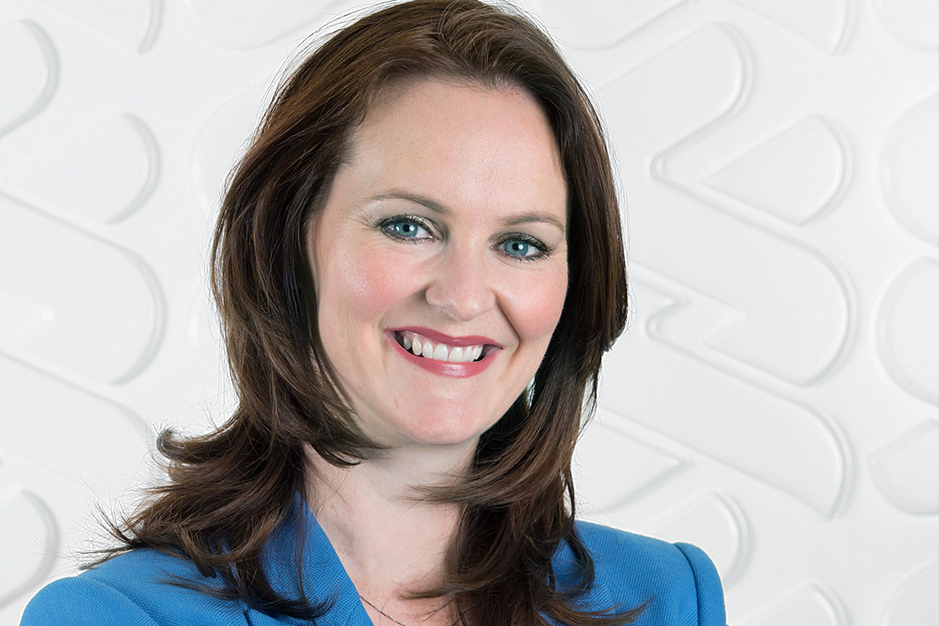Having a diverse and inclusive workforce is something that unites us here at the Bank. It’s not about targets for the sake of targets but about recognising that the diversity of our workforce is our strength – whether in terms of gender, race, nationality, background and experience.
As we advance into 2018, it’s also time to step up the game! The Women’s Empowerment Principles (WEPs) network in the UAE continues to grow in numbers with its list of new WEPs signatories from different business operations. To further strengthen our WEPs campaign in the region, we have extended our engagement platform to incorporate stories from potential signatories, as well as those from our own taskforce and from other UN bodies.
First up, let’s catch up with Standard Chartered – a household name for most of us and a multinational bank that lives and breathes its ground-breaking policies for women, with many taking their place at the upper echelons of its organisation. Jane Siney is their UAE Head of HR and here she takes us through her daily realities and plans for 2018:
WEPs UAE: Hello Jane! Please introduce yourself and the role you currently hold.
Jane: Hello, I’m Jane Siney – Head of HR UAE for Standard Chartered Bank. I am married with two children (Lily age 6 & Amelia age 2). I was born in Ireland and immigrated to Australia when I was 3. We have over 2,300 employees based in the UAE, with country, regional and global teams based here – so quite a diverse mix!
W: So what is it that brought you to this role?
J: I have spent most of my career within HR in the banking sector. My first role post university was in recruitment and my career has moved across different areas in HR, although predominantly in the generalist space. I have worked in Sydney, London and now Dubai.
The reason I was attracted to the bank (and Dubai) was because of the growth opportunities. I had never worked in an emerging market, so Standard Chartered was very appealing to me. I was working in London prior to joining the Bank and at the time of the financial crisis. There was plenty of work for HR professionals as you can imagine, but none of them really appealed to me. Standard Chartered was one of the few banks that were focusing on growth and I was offered the opportunity to work in Dubai in the Retail Bank. My first time in Dubai was two days before I started my new job!
W: So let’s get down to business; what measures does your company have in place to help with Diversity & Inclusion in the region?
J: The bank is very committed to providing an environment that is inclusive and provides growth and development opportunities for everyone. On gender equality, we have ambitious targets around attracting and retaining female talent in the industry. We have some of the best policies in the region which support men and women manage their work life balance, including options to work flexible hours and work from home, whilst continuing to meet the needs of our customers. In addition, we offer 20 weeks maternity leave and two weeks paternity leave – both on full pay. There is also an option for all employees to avail of three months sabbatical leave.
W: What do you feel these policies have achieved?
J: The most important achievement is that our employees feel we value them personally as well as professionally. We have some great examples of both men and women working flexibly, and not just those with children. Two examples come to mind – one lady who was training to climb a mountain and needed more flexibility on time she spent in the office in order to get the most out of her training. A second example is a gentleman who wanted to support his wife who was recently returning to work post maternity leave – he leaves early each day to collect his son from school and then logs in when he is back home in the evening.
W: Why are these policies so important right now?
J: We recently launched our purpose statement “Driving commerce and prosperity through our unique diversity.” Diversity is at the core of who we are as a Bank, whether it’s the diversity of the markets in which we operate in or the people whom we employ. Having a diverse and inclusive workforce is something that unites us here at the Bank. It’s not about targets for the sake of targets but about recognising that the diversity of our workforce is our strength – whether in terms of gender, race, nationality, background, experience, etc. By bringing different approaches and opinions to the table, we can drive real change and ultimately become more successful.
W: And finally, is there more you’d like to achieve?
J: I think there are a lot of positive conversations around the importance of gender diversity in the workplace, however many of these conversations are led by women themselves! I would like to move the conversation towards gender equality and identifying those people (men and women) who champion diversity. Making small changes like these can sometimes have the greatest impact.
